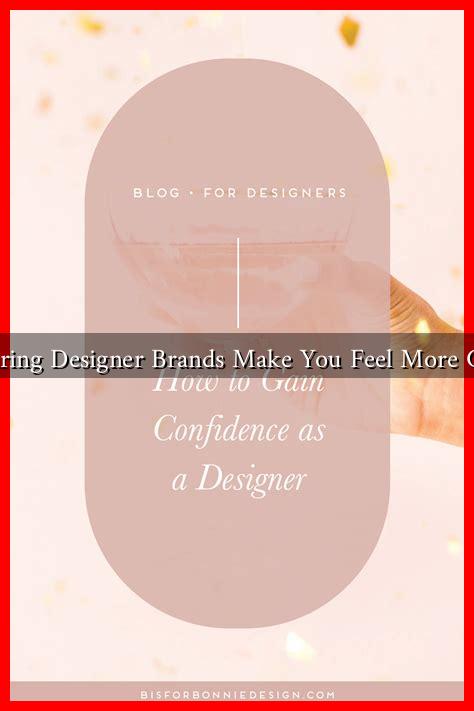-
Table of Contents
Does Wearing Designer Brands Make You Feel More Confident?
In a world where first impressions often dictate social interactions, the clothes we wear can significantly influence how we feel about ourselves. Designer brands, with their high price tags and exclusive appeal, have long been associated with luxury and status. But does wearing these brands genuinely enhance our confidence? This article delves into the psychological and social implications of wearing designer clothing, supported by research, case studies, and expert opinions.
The Psychology of Fashion
Fashion is not merely about aesthetics; it is deeply intertwined with psychology. The concept of “enclothed cognition” suggests that the clothing we wear can affect our mental state and behavior. A study published in the Journal of Experimental Social Psychology found that participants who wore formal clothing performed better on cognitive tasks than those in casual attire. This phenomenon can be attributed to the symbolic meaning associated with different types of clothing.
Designer Brands and Self-Perception
Wearing designer brands can significantly alter an individual’s self-perception. Here are some ways in which designer clothing can boost confidence:
- Social Status: Designer brands often signify wealth and success. Wearing them can lead to a perception of higher social status, which can enhance self-esteem.
- Quality and Craftsmanship: Designer items are typically made with superior materials and craftsmanship, which can make the wearer feel more polished and put-together.
- Exclusivity: Limited edition items or exclusive collections can create a sense of uniqueness, making the wearer feel special and confident.
Case Studies and Real-Life Examples
Numerous case studies illustrate the impact of designer clothing on confidence. For instance, a survey conducted by Statista revealed that 60% of respondents felt more confident when wearing luxury brands. This sentiment was echoed by a group of college students who reported that wearing designer clothing during job interviews significantly improved their self-assurance and performance.
Another compelling example is the “power dressing” phenomenon, popularized by figures like former First Lady Michelle Obama. Her choice of designer outfits often conveyed authority and confidence, influencing public perception and her effectiveness as a leader. This illustrates how clothing can serve as a tool for empowerment.
The Counterargument: Authenticity Over Labels
While many argue that designer brands enhance confidence, others contend that true self-esteem comes from authenticity rather than labels. Critics argue that relying on external symbols of status can lead to superficial confidence that is easily shaken. They advocate for a focus on personal style and comfort over brand names. Here are some points to consider:
- Individuality: Emphasizing personal style can foster genuine self-expression and confidence.
- Financial Burden: Investing in designer brands can lead to financial strain, which may ultimately diminish confidence.
- Social Pressure: The need to wear designer brands can create anxiety and pressure to conform to societal expectations.
Conclusion: The Balance Between Brands and Self-Confidence
In conclusion, wearing designer brands can indeed enhance confidence for many individuals, primarily through the lenses of social status, quality, and exclusivity. However, it is essential to recognize that true confidence stems from within and is not solely reliant on external factors. While designer clothing can serve as a confidence booster, cultivating a sense of self-worth based on authenticity and personal style is equally important. Ultimately, the key takeaway is to find a balance between the allure of designer brands and the empowerment of being true to oneself.


